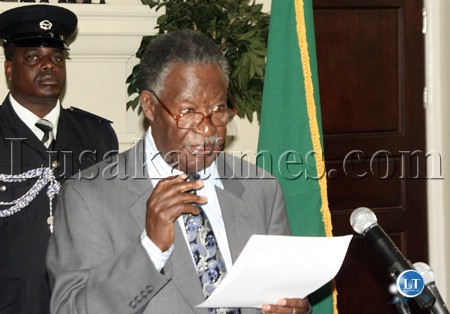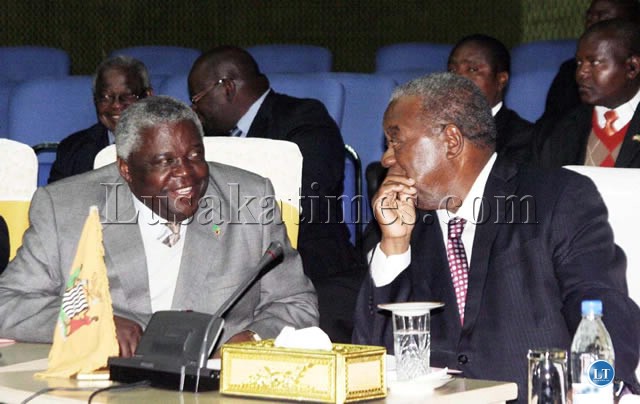
Government has abolished the basic schools system and re-introduced the grade 1 to 7 primary and grade 8 to 12 secondary system. Education, Science and Vocation Training Minister, John Phiri made announced the development adding that community schools will be upgraded to primary status. Dr Phiri made the announcement on yesterday at a press briefing at his ministry in Lusaka.
Dr Phiri also announced that all existing colleges of Education will be transformed into universities. He said that has constituted a technical committee which has been tasked to produce a road map on the transformation of earmarked State colleges into universities.
Dr Phiri said the committee, which is chaired by the permanent secretary in his ministry, is expected to complete its work in 21 days. The colleges include Chalimbana, Palabana, Nkrumah and Copperbelt colleges of Education.
Dr Phiri said the committee is also expected to deal with the costing aspect of the transformation. He said Government has put in place a number of measures including the reintroduction of the conventional primary and secondary school education system and the construction of new universities to address the challenges the country’s education system is facing. Dr Phiri said one of the challenges has been a mismatch between reforms and the preparedness to implement them.
Meanwhile, Dr Phiri says Government will invest in national priority-driven scientific research to accelerate national development. “Government will as a matter of urgency develop a national research agenda to guide investment in science and technology,” Dr Phiri said.
He said this when he met his ministry staff and heads of institutions of higher learning at Technical Education, Vocational and Entrepreneurship Authority (TEVETA) in Lusaka yesterday. Dr Phiri said under the MMD Government scientific research did not receive proper attention and this contributed to the under-development of the country.
“Under the MMD Government scientific research was not given the priority it deserves and to some measure the state of under-development of this country can be attributed to lack of investment and lack of a research agenda in science and technology,” he said.
Dr Phiri said research in science and technology in the country should be boosted to contribute to national development in a meaningful manner. He said to promote increased research in science and technology, his ministry will prioritise the teaching of science subjects in educational institutions at all levels and improve on current learning institutions as well as expand facilities for teaching science and technical subjects.
Dr Phiri said the ministry will also set up exclusive science and technical schools, colleges and universities. He said Government will revamp the National Institute for Scientific and Industrial Research by dismantling its debt and increasing the budgetary allocation to research activities.
Dr Phiri said Zambia should aim at making its economy knowledge-based to ensure higher levels of national development. “We should strive towards a knowledge economy. We all know that all leading economies in the world have become hugely knowledge economies,” he said.
The Education Minister said Government will work hard to ensure emoluments of lecturers and scientists are attractive and regionally competitive. He added that Government is aware that conditions of service of the lecturers and scientists in his ministry are uncompetitive and that this state of affairs has made it difficult for it to stem brain drain.
Dr Phiri said all Zambian children should have a right to a free, compulsory and quality education regardless of whether they come from a wealthy family or not.
He said Government will also empower youths with education and skills that will make them more productive.
[Zambia Daily Mail]













